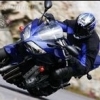Amphicar, on Aug 12 2013, 12:47, said:
There is at least one documented case of a Formula 1 driver taking a performance enhancing drug before a major race (albeit not an F1 race). Before the 1955 Mille Miglia, Stirling Moss took some "pep-pills" given to him by Fangio, his Mercedes team-mate. Moss, driving single-handed alongside navigator Denis Jenkinson, duly won the grueling 10 hour race, with Moss recording in his diary "Fangio's pills are FANTASTIC !" Much later, in an interview with Doug Nye, Moss commented:
"In the first grand prix races that year in Argentina - run in terrible heat - the Old Boy had been the only one to complete the distance solo. So when he offered his magic pills (and that was the only time he ever shared them) we accepted. I took mine, Jenks didn't take his. To this day I've no idea if that pill would be legal or illegal, acceptable or banned. But at that time it was no issue. Dexedrine and Benzedrine were commonly used in rallies. The object was simply to keep awake, like wartime bomber crews."
...very interesting and it sounds he was given some sort of amphetamine, not really a good idea. Such stimulants are often described as giving more energy, making people more alert, but there doesn't seem to be much evidence that this is the case - more likely is they just make the user think they are more alert and have better concentration etc. David Nutt illustrates his work on some of the drawbacks of amphetamines with the very sad case of a contemporary of Moss who wasn't so fortunate taking speed: Tommy Simpson, the British cyclist who collapsed and died during the Tour de France:
"...what makes this case particularly tragic is that it's unlikely the drugs [brandy and amphetamines] helped him cycle faster. What they did do was allow him to ignore the warning signs of overexertion and overheating which would have forced him to stop much earlier, and would probably have saved his life."
David Nutt's book also gives us another interesting parallel to give food for thought on how stiumulants might hypothetically help or hinder F1 drivers when he talks of how he was consulted by the British Aerobatic Association who were worried about the effects of stimulants on flying:
"Although this hasn't been formally researched, we do have case studies from the Second World War: the German air force used Methamphetamine heavily which, if anything seemed to hinder pilots' abilities in the air. Although stimulants can help people stay awake, they can also get people locked into stereotyped routines, making them less able to respond to the world around them."
Interesting, huh? If he is correct in his research, sounds like this would be more likely to severely disadvantage a driver. Nutt concluded there would be no overall benefit to pilots taking such drugs and ended up not recommending mandatory drug testing for them. The brain, and how it reacts to drugs is a fascinating subject but so far it seems that there's no such thing as a free lunch.










































